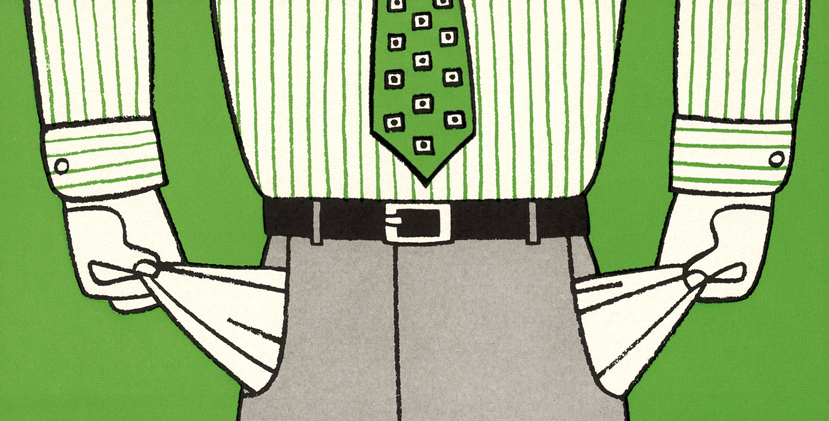The Veteran Access Payment has increased this month in line with the tripling of the bulk billing incentive.
The federal government is tripling incentive payments for GPs treating veterans, known as Veteran Access Payments (VAP), in an attempt to keep access to GPs affordable for ex-military.
Veteran Luke Millwood, who was medically discharged after 19 years of service, told The Medical Republic that he hoped this change would help guide veterans who are largely lost in the public health system while also making the services financially viable for GPs.
“GPs make up the foundation of an entire allied health care system,” said Mr Millwood.
“My GP in particular – he’s excellent – was able to provide the resources that I needed to access a range of different services.
“If that’s not available to a veteran, it can be a beyond frustrating experience.”
Earlier this month, the government announced an investment of $33.3 million into VAP to ensure veterans are not paying out of pocket.
“With increasing costs of living and rising costs for business, the veteran community has told us they are finding it harder to find GPs who will treat them without out-of-pocket costs. That changes today,” said Prime Minister Anthony Albanese announcing the increase.
The incentives apply to a range of telehealth and face-to-face appointments.
Incentives for item 23s will increase by $16 and $31 in metropolitan and the most remote areas respectively.
According to the Department of Veteran’s Affairs (DVA), “claiming the tripled VAP is consistent with claiming the Medicare Bulk Billing Incentive”.
“To claim the incentive, GPs will need to use the new tripled VAP item numbers,” the DVA told TMR.
According to Mr Millwood, the struggle for veterans, who face very nuanced and complicated health battles, is that once they are discharged, healthcare is provided “at a whim” through the public health system.
Veterans go from a guaranteed income to financial insecurity and often struggle, said Mr Millwood, meaning out-of-pocket costs can present a significant barrier to seeking help.
Thankfully, the large veteran community on the Gold Coast where Mr Millwood lives allowed him access to a practice that was tailored to veterans and a GP well versed in veteran care.
Mr Millwood’s GP was the “absolute epicentre” of his care, he said, facilitating access to rehabilitation services, physio, relationship care and couples counselling.
When veterans leave service “they don’t even have a Medicare card”, Mr Millwood said.
“You’re navigating something that you have absolutely no idea about.
“I have no idea what that journey would look like without a GP who was so willing to navigate the pathways of DVA and civilian infrastructure.”
For veterans, especially in the mental health and addiction space, a cry for help may only come once, said Mr Millwood, meaning access to the first port of call is absolutely essential.
“It’s very heartwarming to hear that the government is doing what they can to increase services and increase that base level of care that allows veterans to be able to reach those services that they need,” he said.
Mr Millwood emphasised the importance of a “multifaceted approach” to veteran care that extends beyond general practice to allied health support, community support and beyond.
Speaking to TMR, Jake Majerovic, strategy director for Hope in Health which coordinates veteran-focused rehabilitation programs, reiterated the importance of coordination between general practice and other rehabilitation services to provide the type of nuanced care required by veterans.
According to Mr Majerovic, while there are many healthcare services available after discharge, they remain inaccessible through not only cost but bureaucracy.
The government has also commissioned a review to reduce the administrative burden on practitioners by consolidating DVA forms.
So far the 19 most commonly used forms have been cut to seven.
The remaining 54 forms should be significantly reduced by mid-2024.
Mr Majerovic encouraged rehabilitation services to “share the administrative burden” with GPs, including prefilling forms, to encourage team-based care.
By facilitating regular GP visits with proper remuneration, Mr Majerovic hoped there would be a movement away from disjointed “ad-hoc” care to the delivery of more effective services.
For veterans, many of whom have been “battered and bruised through administration”, without an easy road to healthcare and rehabilitation, it may end up in the “too hard basket”, said Mr Majerovic.
“We hope that the positive with this [increased funding] is that, by eliminating the gap fee, the small percentage of veterans who otherwise wouldn’t have reached out for rehab, will.”
According to the DVA, “there are thousands of GPs who accept Veteran Cards across the country”.
“In 2022-23, there were more than 35,000 (35,598) GPs that provided more than 1.4 million (1,478,186) services to 145,331 Veteran Card holders,” the DVA told TMR.
But due to financial demands on practices, some have been pushed to charge gap fees instead of opting for VAP bulk billing incentive, as the incentive payments fell short of covering care costs.
Mr Majerovic hoped that this funding would “synthesise the reality of running a GP practice with the need of veterans to have increased regularity of visits”.
Meanwhile, in the name of supporting veterans, the Northern Territory government announced today that it is launching Operation Thrive, a face-to-face program run by the NT PHNs and delivered by veteran and GP Dr Kerry Summerscales.
The program will provide access to training specialising in veteran healthcare to GPs and doctors and a peer-led suicide prevention campaign.
At present 32 GPs in the NT have signed up for the educational program.
“Operation Thrive is a testament to our commitment to supporting our veterans and their families,” said Chief Minister Natasha Fyles.
“By providing our GPs with specialised training, we aim to ensure that veterans receive the best possible care and support they deserve. This is why we are making this training accessible.”





